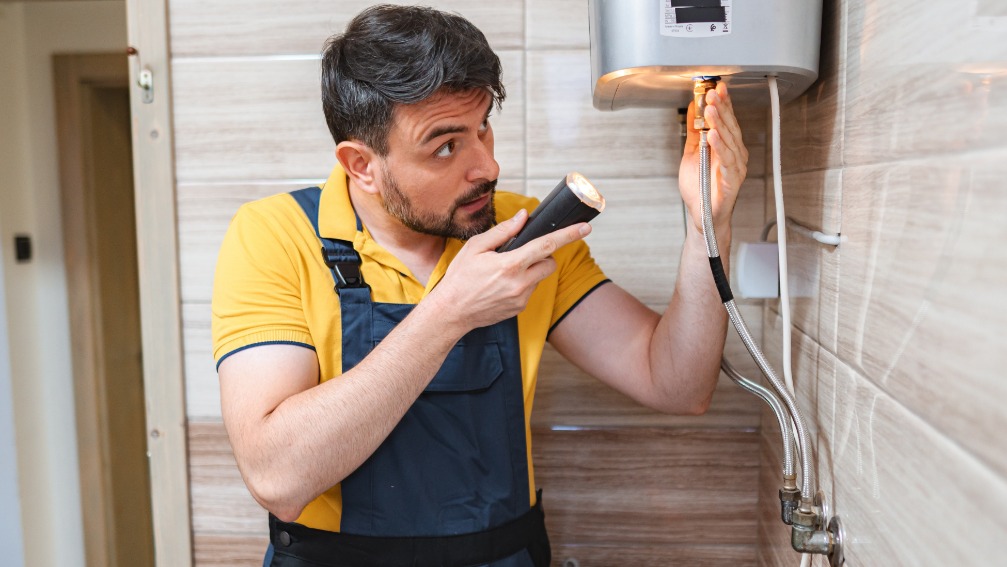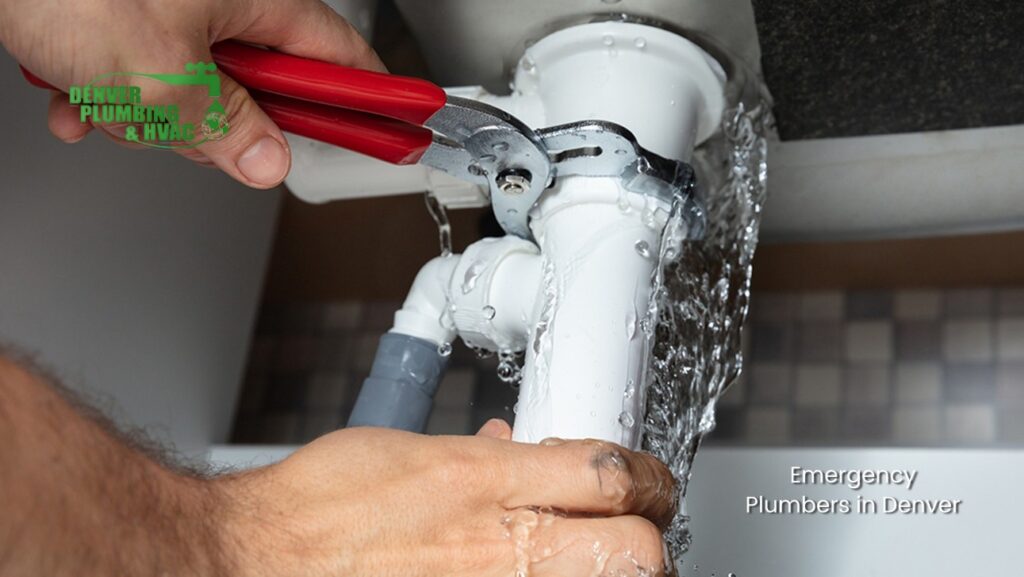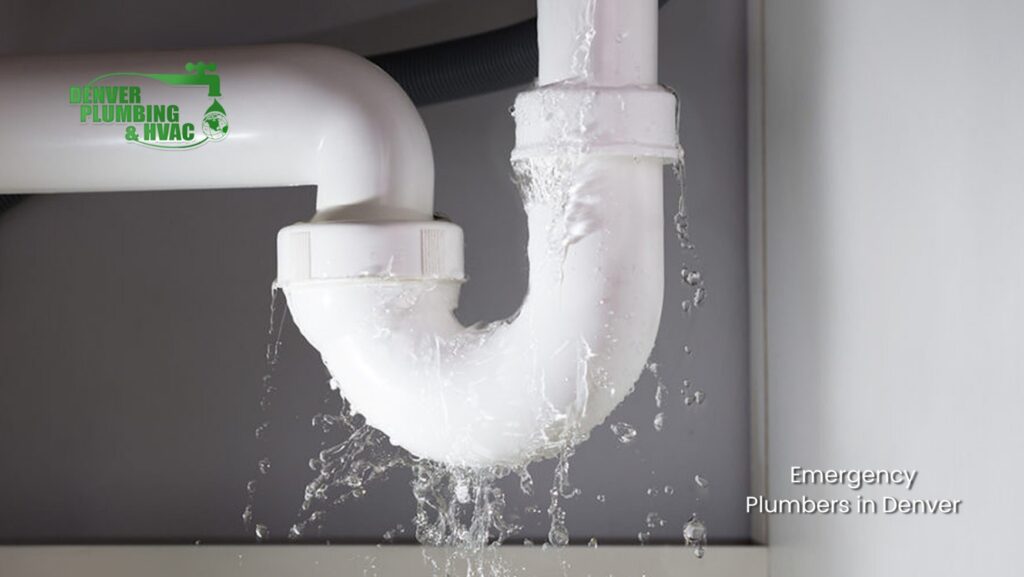The Hidden Toll of Denver’s Freeze Thaw Cycle on Home Plumbing
It is a frigid Denver morning, and you wake up to a flooded kitchen or a frozen pipe that has burst overnight. The shock is immediate, and the damage begins long before you even reach for a towel. Denver’s winters are notorious for dramatic freeze thaw cycles that push residential plumbing systems to the brink. Temperatures drop well below freezing at night, then suddenly warm up during the day, pushing water inside your pipes to expand and contract in rapid cycles. Older homes feel the strain even more because many still rely on aged plumbing, minimal insulation, and outdated materials that cannot withstand repeated stress. These conditions make it essential to understand how this cycle leads to costly failures and why homeowners often rush to search for plumbing repair near me when trouble strikes. This is also the reason many residents turn to professional guidance from plumbing repair companies in Denver to keep their homes protected before temperatures take a sudden dive.
Understanding Denver’s Freeze Thaw Cycle
Daily temperature swings create a hazardous cycle for household plumbing. When water freezes, it expands with powerful force that pushes outward on the walls of any pipe it occupies. As temperatures rise again, the thawing process begins, and the water contracts. This back-and-forth movement stresses pipes repeatedly until weak points give way.
Denver’s unique climate magnifies this issue. The city’s elevation brings colder nights and warmer daytime temperatures, which means water inside pipes can freeze solid and then thaw within hours. Dry air and high winds make cooling even faster. Older homes, especially those built before modern insulation standards, face higher risks because materials like galvanized steel and aging copper cannot tolerate the expansion that comes with ice formation. Uninsulated PVC also becomes brittle in extreme cold, turning minor pressure changes into major ruptures.
How Freeze Thaw Cycles Cause Pipe Bursts
The process begins when water freezes inside a section of pipe. As ice forms, it expands outward and often creates a blockage. Pressure begins building between the blockage and any closed faucet downstream. The pipe eventually swells to a point where it cracks or splits open.
Galvanized steel pipes are common in many older Denver homes and are especially vulnerable. Copper lines without insulation fare poorly as well, and PEX, while more flexible, still struggles in exposed or unheated areas. The most common failure locations include basements, crawl spaces, attics, exterior walls, garages, and older multi story homes with large runs of exposed plumbing. These areas experience the most dramatic temperature changes.
When a pipe bursts, homeowners often panic and turn immediately to online searches for plumbing repair near me because water damage spreads quickly, especially in multi level homes where leaks can travel through ceilings and walls.
The Role of Aging Plumbing in Burst Pipe Risks
Plumbing does not last forever. Over time, corrosion weakens metal pipes, joints loosen, and materials thin. Older plumbing systems installed decades ago were not designed to withstand rapid freeze thaw expansion cycles. These systems crack more easily under pressure and react poorly to the swelling forces created inside frozen lines.
This is why professional inspections play such an important role. Many plumbing repair companies in Denver help homeowners evaluate the condition of outdated systems before winter arrives. Early identification of vulnerable pipe sections can prevent seasonal emergencies and reduce the likelihood of severe structural damage.
Signs Your Pipes Are at Risk Before Winter
Before a pipe bursts, it often shows subtle warning signs. Low water pressure, recurring small leaks, banging sounds within the walls, rust colored water, or cold drafts near plumbing zones signal underlying issues. Many older Denver neighborhoods like Capitol Hill, Washington Park, Highlands, Baker, and Congress Park still rely on original plumbing systems that struggle with Denver’s winter temperature swings. Recognizing early symptoms allows homeowners to schedule preventive maintenance and insulation improvements long before the risk becomes severe.
Tips for Preventing Pipe Bursts in Denver Homes
Homeowners can take several practical steps to protect their plumbing during Denver’s coldest months. Insulating exposed or vulnerable pipes creates a barrier that slows the rate of temperature change. Foam sleeves, heat tape, or fiberglass insulation help maintain stable internal temperatures even when outdoor conditions shift quickly.
Keeping indoor temperatures consistent also protects plumbing. Allowing the thermostat to drop too low at night increases the freezing risk inside exterior walls. A slow, steady flow of warm air through the home can make a dramatic difference.
Letting faucets drip slightly during extreme cold helps relieve pressure inside the pipes. Even a small amount of movement prevents water from freezing solid. Sealing drafts around plumbing areas also plays a major role. Cold air entering through wall cracks, crawl spaces, or foundation gaps can freeze a pipe rapidly.
Disconnecting and draining outdoor hoses prevents ice from backing up into indoor lines. Understanding the location of the main water shutoff is another protective measure. Quick shutoff during a burst pipe event reduces flooding and helps control the damage.
Scheduling professional winterization ensures all vulnerable areas are checked thoroughly. Many plumbing repair companies in Denver specialize in winter preparation, providing insulation upgrades, pipe replacements, and cold weather system checks.
What To Do If a Pipe Freezes but Has Not Burst
If you suspect a pipe has frozen, you should keep the faucet open and apply gentle heat using a hair dryer, heating pad, or warm towels. High heat or open flames should never be used because they can crack or melt plumbing components. If the pipe is inaccessible or the thawing process does not restore water flow, it is best to search for plumbing repair near me and call a trained professional. Improper thawing can lead to hidden cracks that burst later when pressure rises.
What To Do If a Pipe Has Burst
If the pipe has already burst, shutting off the main water supply is the most important first step. Protecting valuables, moving furniture, and using towels, buckets, or a wet vacuum to contain the water will help prevent additional damage. Emergency repair should be handled by experts. Plumbing repair companies in Denver can assess the damage, locate the break, and replace compromised sections safely. Homeowners should also document damage thoroughly for insurance claims.
Cost Considerations for Winter Pipe Repair and Prevention
The cost of emergency plumbing repair is always higher than preventive measures. Insulation upgrades, pipe replacements, and annual inspections cost far less than extensive water remediation, drywall repair, and mold removal. The age of the plumbing system, severity of the break, and accessibility all affect repair costs. Professional plumbing repair companies in Denver provide upfront pricing and long term solutions that help homeowners avoid recurring winter failures.
Long-Term Solutions for Denver Homeowners
Long term stability often requires upgrading plumbing materials. Many homeowners transition from outdated galvanized steel to PEX or copper with proper insulation. Smart leak detectors provide real time alerts when water flow changes suddenly. A yearly winterization plan ensures that each season begins with a full assessment of pipes, insulation, and potential vulnerabilities.
Denver’s freeze thaw winters test the strength of every plumbing system. Understanding how this cycle works helps you identify risks before they lead to expensive failures. Early action protects your home and reduces repair costs. Whether your pipes are aging or simply under strain, preparation is always the best defense.
Stay Ahead of Winter Damage
We encourage you to protect your home by contacting Denver Plumbing Consultants for reliable service. You can search for plumbing repair near me to reach us quickly and schedule an appointment for winter preparation or emergency support.





















